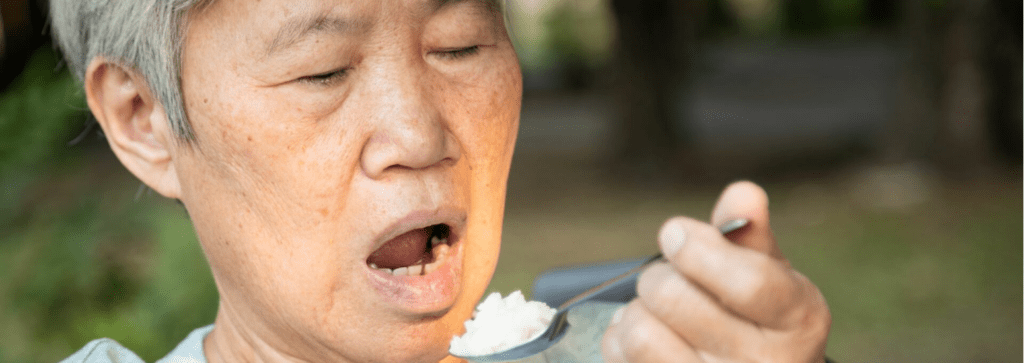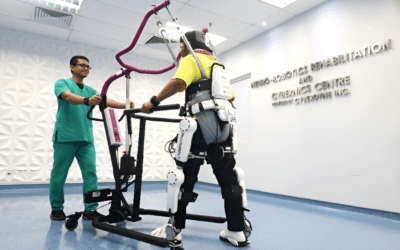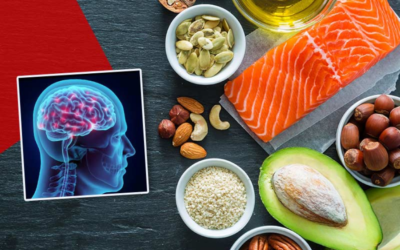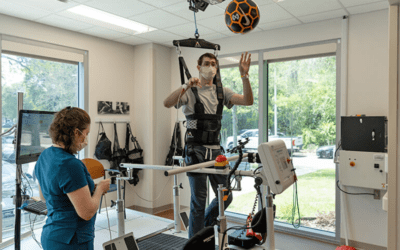Proper nutrition plays a critical role in recovery and long-term health after a stroke. It helps to improve brain function, prevent complications, and reduce the risk of recurrence. Following tailored dietary guidelines can maximize well-being and support a healthier lifestyle.

Key Nutrition Guidelines for Stroke Recovery and Prevention
Adopt a Heart-Healthy Diet:
- Focus on fruits, vegetables, whole grains, and lean proteins to promote cardiovascular health and brain recovery.
- Include foods rich in omega-3 fatty acids, such as salmon, walnuts, and flaxseeds to support brain function.
Limit Sodium and Saturated Fats:
- Reduce salt intake to lower blood pressure and manage stroke risk factors.
- Avoid trans fats and processed foods to maintain healthy cholesterol levels.
Control Blood Sugar Levels:
- Choose complex carbohydrates like whole grains and legumes to maintain stable blood sugar levels.
- Limit sugary snacks and beverages to reduce the risk of diabetes-related complications.
Hydration is Key:
- Stay hydrated with water, herbal teas, or low-sugar drinks to support overall health and prevent dehydration-related fatigue.
- Hydration is vital for recovery as it supports critical bodily functions, including circulation, nutrient transport, and temperature regulation. Adequate water intake aids in flushing out toxins, promoting cellular repair, and maintaining optimal brain function, which is crucial for cognitive and physical healing. Proper hydration also prevents fatigue, reduces the risk of blood clots, and enhances energy levels, contributing to overall recovery and well-being.
Boost Antioxidants and Anti-Inflammatory Nutrients Guidelines for Stroke Recovery
- Incorporate berries, leafy greens, and nuts for their antioxidant properties, which protect brain cells from damage.
- Add turmeric, ginger, and olive oil to reduce inflammation and promote healing.
Monitor Portion Sizes and Weight:
- Maintain a healthy weight through balanced portion control and regular physical activity.
Consult a Dietitian or Healthcare Provider:
- Work with a professional to create a personalized nutrition plan that meets individual needs and health goals.
Benefits of Stroke Nutrition: Essential Nutrition Guidelines for Stroke Recovery and Health
Post-stroke nutritional needs focus on supporting brain recovery, managing risk factors, and preventing future strokes. A heart-healthy diet rich in fruits, vegetables, lean proteins, and omega-3s helps repair damaged cells and improve overall well-being. Limiting sodium, saturated fats, and sugars is crucial for maintaining blood pressure, cholesterol, and blood sugar levels.
Stroke Nutrition…
- Supports brain repair and neuroplasticity for cognitive and physical recovery.
- Helps manage stroke risk factors like high blood pressure, high cholesterol, and diabetes.
- Enhances energy levels and overall well-being for a better quality of life.
Key Foods to support brain health and healing after a stroke – include fatty fish like salmon, rich in omega-3 fatty acids, which promote neuroplasticity and reduce inflammation. Leafy greens like spinach and kale provide antioxidants and vitamin K for cognitive function. Berries like blueberries are packed with flavonoids that protect brain cells and enhance memory. Nuts and seeds, particularly walnuts and flaxseeds, supply healthy fats and nutrients essential for neural repair and overall brain health.
These nutrition guidelines empower stroke survivors to maximize their recovery, maintain health, and enjoy a more fulfilling life.
Meal Planning Tips for a Balanced Diet

- Incorporate All Food Groups:
- Ensure meals include a variety of vegetables, fruits, whole grains, lean proteins, and healthy fats for balanced nutrition.
- Plan ahead:
- Create a weekly menu to reduce stress, save time, and avoid unhealthy last-minute food choices.
- Portion Control:
- Use portion guides to balance calorie intake and avoid overeating, emphasizing nutrient-dense foods.
- Choose Whole Foods:
- Opt for fresh, unprocessed ingredients like whole grains, fresh produce, and lean meats to maximize nutritional value.
- Hydration is Key:
- Include water, herbal teas, or low-sugar beverages in your meal plan to stay hydrated throughout the day.
- Limit Added Sugars and Salt:
- Avoid sugary drinks, desserts, and processed foods high in sodium to support heart and overall health.
- Batch Cooking and Prep:
- Prepare meals in advance to ensure healthy options are readily available, especially during busy days.
- Mind Your Snacks:
- Choose nutrient-rich snacks like nuts, yogurt, or fresh fruit to maintain energy levels between meals.
- Be Flexible:
- Adapt your plan to accommodate cravings or social events while maintaining balance and moderation.
Conclusion
Therefore, proper nutrition is a cornerstone of stroke recovery and long-term health, supporting brain healing, managing risk factors, and preventing recurrence. By adopting a heart-healthy diet rich in essential nutrients, staying hydrated, and making informed food choices, stroke survivors can enhance their recovery journey and overall well-being. With the right nutritional strategies, it’s possible to rebuild strength, restore vitality, and embrace a healthier, more fulfilling life.



